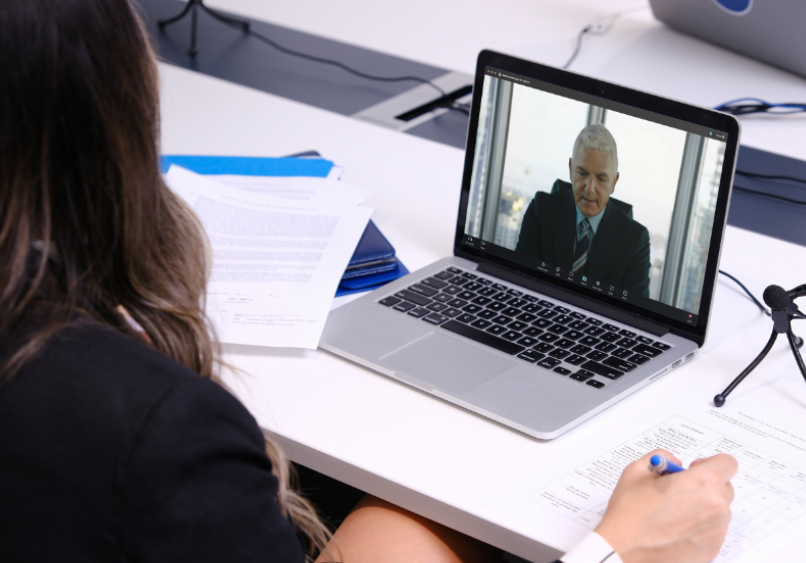International depositions involve so many details. You could (we have, in fact) make a list, or a few lists, of those details to keep on track. The length of a list or two may intimidate some, while a detail here and there may make another person cringe. A list of travel requirements is an obvious example of a list with tedious, annoying tasks no one really wants to bother about. Travel requirements are not only tedious and sometimes unnecessarily complicated, they can also be pricey. Cost-conscious clients do not want to glimpse a list like that, nor do they want to listen to explanations for the price tag. Happily, there is a solution!
Videoconference makes an attractive alternative to flying far, far away to take a brief deposition or two. Aside from missing out on the food and culture of flying far, far away, at least. You will save your client potentially thousands of dollars on travel expenses alone. You save yourself a considerable amount of time, and the wear and tear on the human body that such travel takes. No annoying customs to suffer through, and no jet lag? Videoconference looks better and better, right? So, how do you know videoconference really is the right way to go for your upcoming international deposition?
How To Know When Your International Deposition Should Use A Videoconference
How long will the deposition last? If the answer is likely fewer than 4 hours, you’re on the right track for videoconference. Does the witness speak English well enough no interpreter will be needed? Still on track here! No exhibits, or just a couple? It’s looking good! There are no worries about witness coaching! Videoconference looks more and more suitable! Does every participant have high-speed internet available? You are videoconference-ready, my friend.
Don’t despair if the witness does require an interpreter. You can still take the deposition by videoconference. It is recommended in those instances the witness, reporter (and videographer, if the deposition is being video-recorded) all be in the same location together. It makes for more accurate interpretation, a cleaner transcript, and better-quality video. Also keep in mind interpreted depositions take twice as long as non-interpreted, so double check on the expected duration of the deposition before deciding about videoconferencing.
In the event videoconferencing is not an option, ask your court reporting agency about mobile videoconferencing. This is less expensive than traditional videoconferencing, and the requirements are minimal. Everyone participating needs high-speed internet with a stable connection, a laptop (or some similar device) and someone tech-savvy to monitor the connection present with them. For either traditional or mobile videoconferencing, a test call is vital. The test call is the opportunity to verify the stability of the connection and sort out any issues before the actual deposition.
Just as with any other international deposition, it is best to work with a global reporting agency for a videoconference deposition abroad. They are likely to have reporters and videographers living worldwide, providing further reductions to travel costs associated with the deposition. Additionally, they have the experience in these types of depositions, which will ensure a smoother deposition for all involved. They can help you determine if videoconference (or mobile videoconference) is the best way to go with your international deposition as well. Their videographer can double as a technician to trouble-shoot any issues as well.
Planet Depos has been covering depositions worldwide for over a decade. With offices and reporting professionals positioned throughout the world, Planet Depos is committed to making it happen for attorneys taking depositions wherever their case takes them.
For more information on international depositions, or to schedule, contact Planet Depos International Scheduling at 888.433.3767, ask a Quick Question here, or use our International Scheduling Portal.

